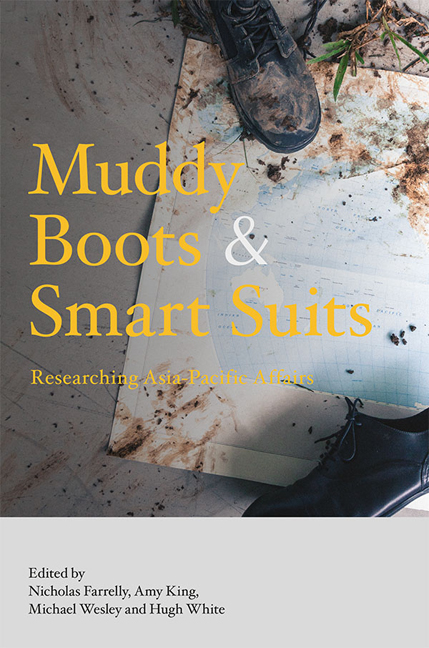Book contents
- Frontmatter
- Contents
- About the Contributors
- 1 Introduction to Research in Asia-Pacific Affairs
- Section I In the Field
- Section II Analysing Politics
- Section III Shaping a Region
- Section IV Conflict and Order
- 9 War and Order: Thinking about Military Force in International Affairs
- 10 Power, Prestige, and Order
- 11 Strategic Culture in the Asia-Pacific: Putting Policy in Context
- Section V Policy and Practice
- Bibliography
- Index
10 - Power, Prestige, and Order
from Section IV - Conflict and Order
Published online by Cambridge University Press: 12 January 2018
- Frontmatter
- Contents
- About the Contributors
- 1 Introduction to Research in Asia-Pacific Affairs
- Section I In the Field
- Section II Analysing Politics
- Section III Shaping a Region
- Section IV Conflict and Order
- 9 War and Order: Thinking about Military Force in International Affairs
- 10 Power, Prestige, and Order
- 11 Strategic Culture in the Asia-Pacific: Putting Policy in Context
- Section V Policy and Practice
- Bibliography
- Index
Summary
This is a good time to study Asia's international security setting. The biodiversity is astonishing. Scholars and analysts have become accustomed to what were once termed “new” security threats being core business. In the past, considerable energy and effort was spent trying simply to make the case that problems like transnational crime or the spread of infectious diseases warranted the distinctive analytic and policy lens of “security”. Today, the range of issues in the region that present clear, immediate, and significant challenges to the well-being, indeed existence, of states and peoples is huge. Equally, the old fashioned security challenges which many had thought we had left behind — rivalry between states over territory, resources, and influence — have become recharged. Flying in the face of the complacent platitudes of liberally-minded globalization enthusiasts, the growth, wealth, and interdependence of Asia's states and societies has fuelled tensions, not caused a binding of interests or fostering of a sense of common cause.
But it is not just the range of security issues — both conventional and non-traditional — it is the sense of change and the rate with which such changes are occurring which makes the field so engaging and challenging. There is a palpable sense that the current period is experiencing a high level of “plasticity” (Mahbubani 2008). The mix of moderate foreign policies and a stable military balance, that kept the traditional security concerns from centre stage for over forty years, is changing. Moreover, the global financial crisis of 2007–8 and its recessionary aftermath has accelerated the sense of transformation. The structures which gave confidence in the past are eroding, future trajectories are uncertain, and state goals and ambitions similarly unclear. Therefore, it is a good time to study Asia's security landscape.
One of the notable features of the Asian security literature, both scholarly and policy-focused, is the absence of a shared vocabulary about that with which we are trying to grapple. Perhaps more precisely, there is no clear intellectual consensus about the meaning of central concepts and ideas.
- Type
- Chapter
- Information
- Muddy Boots and Smart SuitsResearching Asia-Pacific Affairs, pp. 141 - 155Publisher: ISEAS–Yusof Ishak InstitutePrint publication year: 2017

